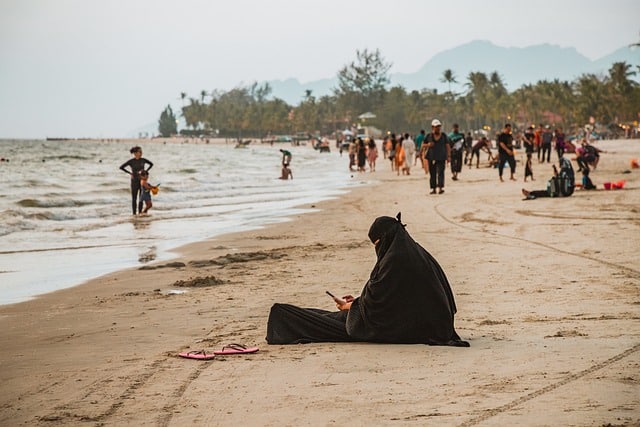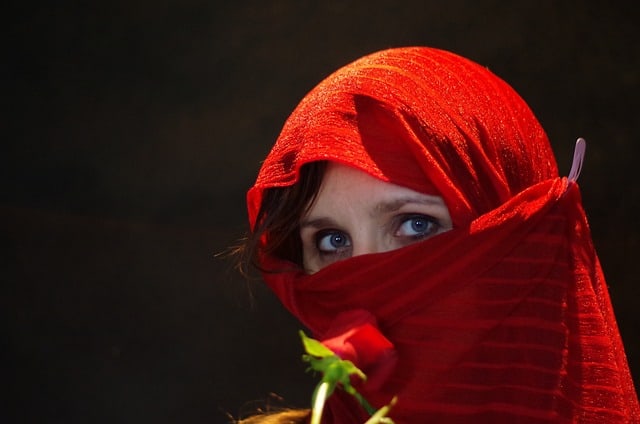
Many many years ago I visited Egypt and went with a group to a mosque.
I arrived at the entrance and it was absolutely beautiful. But as I was about to enter, a man stopped me and refused to allow me to go in because I needed to cover my head with a scarf.
Rather than simply purchasing one from a vendor outside, I walked away, annoyed, and waited for the group to come back outside.

I was annoyed and offended, and sat there fuming for at least a half hour, having this heated imaginary debate in my head about how unfair it was, how men were not expected to cover their heads or dress a certain way, how there’s a double standard, and on and on.
Regardless, because of my inability to put my feelings and opinions aside, I missed out on one of the most beautiful experiences, and the opportunity to learn more about a religion and culture and the history of a country I may never be able to visit again.
Today, I would wear the hijab/ headscarf.

When it’s Ramadan and I am a visitor in another country, I pay extra attention to what I am wearing and tend to be more modest with my clothing.
The dress code for women in Muslim countries is not uniform and can vary depending on the country and the specific cultural and religious practices of its people, so it’s best to do your research before visiting.
According to a travel guide by TripSavvy, female travelers, regardless of their own religious persuasion, should always cover their hair entirely in mosques when visiting Islamic countries. However, the guide also notes that wearing the traditional dress is not always a requirement and women do not need to pack a veil or burka.
Many Muslim women around the world are working to challenge the notion that the hijab is a sign of oppression. For some, the hijab is a religious obligation, but it can also represent their identity as Muslim. However, wearing a headscarf or hijab is not mandatory for non-Muslim women in most Muslim countries.
It is important to note that the dress code for women in Muslim countries can vary depending on the country and region. For example, in Indonesia, a Muslim country, women dress in different styles, with some wearing modest clothing while others wear Western fashion like shorts and bikinis.
In conclusion, while it is important to be respectful of the local culture and customs when visiting Muslim countries, there is no universal dress code that applies to all Muslim countries. Women travelers should research the customs and practices of the country they plan to visit and dress accordingly. Covering one’s hair in mosques is a general rule to follow, but wearing a headscarf or hijab is not mandatory for non-Muslim women.
Instead of giving my opinions of Islam or headscarves, I think, if it was Easter and I was visiting a church, would I wear whatever I wanted to, or would I respect the church members and dress appropriately?
What are your thoughts? Do you tend to dress differently when you visit a new country? How should one dress while visiting a Muslim country?
Have you ever been asked to cover your hair or change your clothes while in a different country? How did you react?











